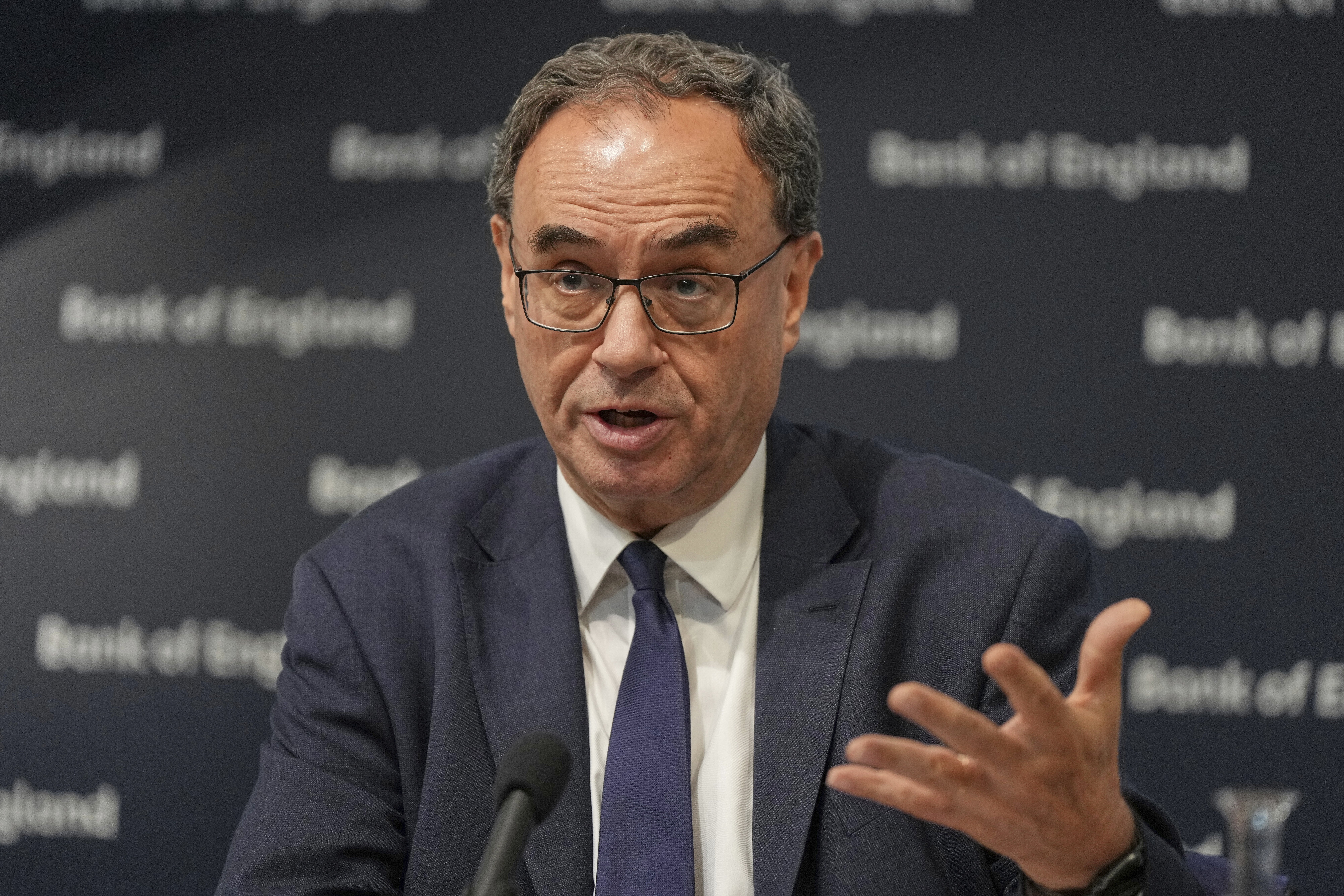
Trade tariffs could increase the risk of some businesses falling behind on loans, while a high proportion of the UK workforce is in sectors more exposed to global shocks, the Bank of England has warned.
Households and businesses nonetheless remain resilient, and the UK banking system is equipped to support them even if conditions significantly worsen, the Bank’s Financial Policy Committee (FPC) said in its latest report.
The FPC said there was a high degree of unpredictability about how global trade will evolve, with US President Donald Trump hiking tariff rates in April but negotiations with other countries over possible trade deals ongoing.
Conflict in the Middle East has also raised the risk of energy prices spiking, particularly if the supply of oil and gas were disrupted, it found.
This could particularly impact businesses that are more reliant on financing linked to global financial markets, which have faced turbulence in recent months.
“The potential for much higher trade tariffs increases the likelihood of corporate default in the most exposed sectors, and losses for their lenders,” the FPC’s Financial Stability Report read.
The outlook for the UK is weaker and more uncertain than it was in November, when the committee previously produced a report, it said.
An escalating trade war could weigh on UK businesses should global consumer demand weaken, lending conditions tighten, or reduced availability of funding causes firms to slow down investment.
“Further shocks could particularly impact firms in sectors dependant on demand from the US market, such as manufacturing,” the report read.

These sectors, as well as others like retail, are more vulnerable to a drop in consumer demand and are less able to recover earnings by raising prices.
Analysis for the Bank suggests that firms in sectors likely to be more impacted by the global trade shock, either directly or indirectly, account for around 60% of UK employment.
Governor Andrew Bailey, who leads the committee, said the Bank had been hearing from UK businesses delaying investment plans due to the more uncertain economic situation.
He stressed that the central bank was having to “watch very carefully” the link between “uncertainty and caution in terms of investment”.
He also recognised that a more fragmented global economy would negatively impact activity, which was therefore “bad for employment”.
However, the FPC concluded that despite pockets of vulnerability, UK businesses would typically be able to pay their debts even in the face of further global volatility such as lower demand and supply.
Furthermore, the report found that the UK banking system has the capacity to support households and businesses even if economic and business conditions became substantially worse than expected.
Meanwhile, the committee warned that intensifying geopolitical tensions could raise the risk of cyber attacks around the world.
It said this was a “global challenge” but that UK financial firms were generally prepared to deal with cyber incidents.
Mr Bailey also weighed on reports that the Government was considering bringing new powers that force pension funds to invest more in UK assets, in order to help grow the economy.
“We’ve had a low level of pension fund investment in the economy and I think structural changes to the pension industry are helpful in this effect,” the Governor said.
“However, I do not support mandating, I don’t think that’s appropriate.”
“I think reforming the pensions industry does require a lot of heavy lifting but it needs to be done,” he said, but stressed that he hopes changes will be “natural”.
Starmer and Macron to hammer out migrants deal in crunch summit
Ukraine war latest: Trump warned Putin he will bomb Moscow if Ukraine is attacked
Kemi Badenoch to call for tougher restrictions on benefits to cut welfare bill
Trump asks Liberian president where he learned English - his country’s first language
Watchdog bans host of ads for prescription-only weight-loss medications
Business news live: Inflation update and Royal Mail to scrap second-class post







